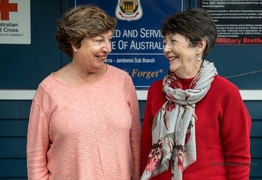Why Slow Dough Bakery earned its Snail of Approval
Lynne Strong
12 May 2025, 3:00 AM
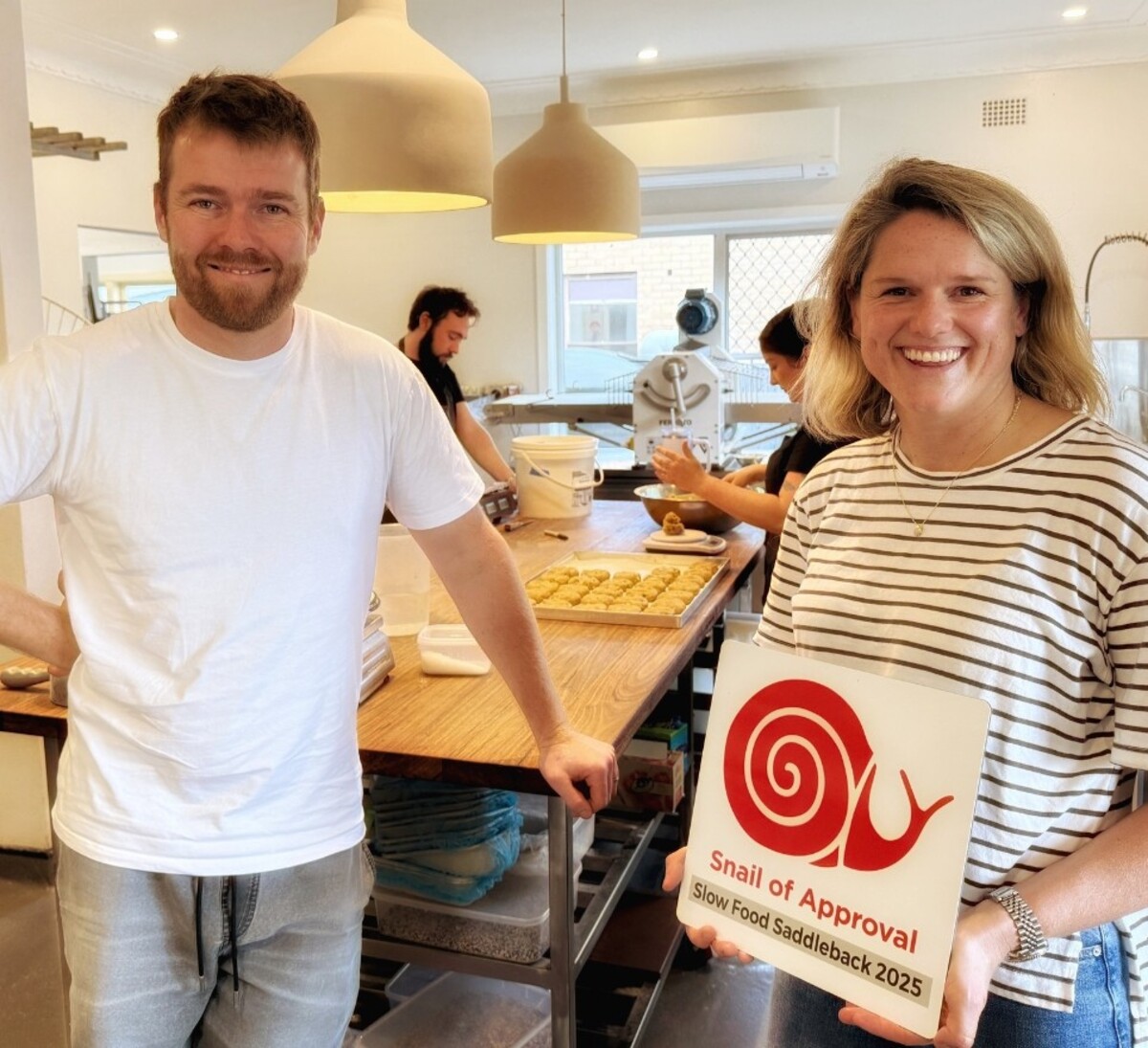 Richard and Lucy King's Slow Dough Bakery is a model of circular economy in action, grounded in a belief that great food should nourish people, place and purpose.
Richard and Lucy King's Slow Dough Bakery is a model of circular economy in action, grounded in a belief that great food should nourish people, place and purpose.In a world built for speed, Slow Dough is an act of quiet rebellion.
Tucked just off Kiama’s main drag, the little bakery with the Snail of Approval is proof that food made slowly, shared generously, and sourced thoughtfully still has a place and a devoted following.
Richard and Lucy King didn’t set out to start a movement.
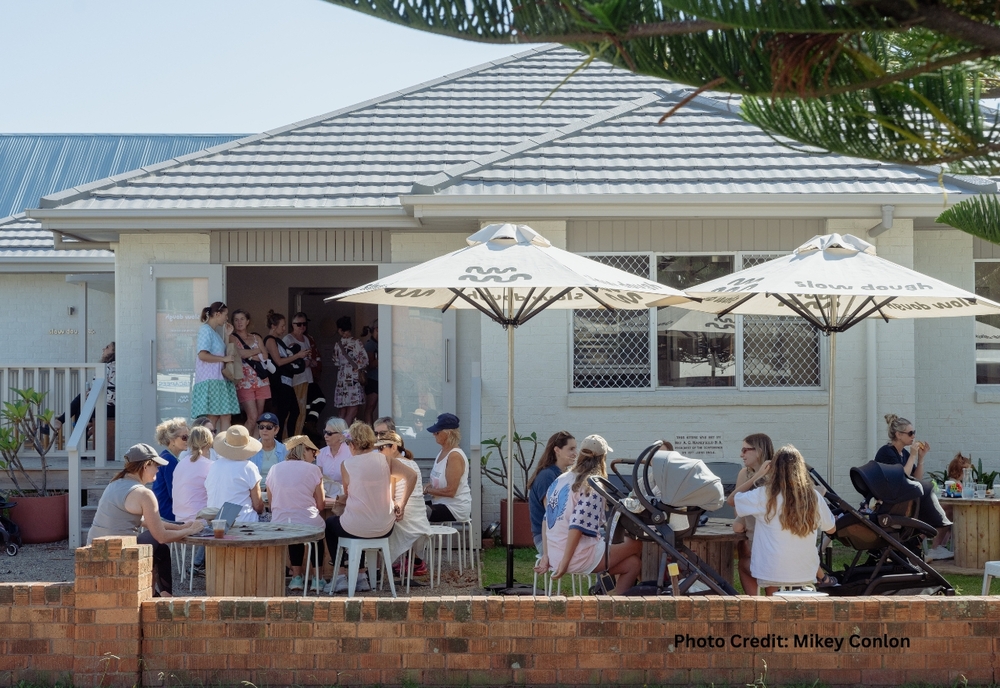
They simply wanted to share their growing sourdough skills during lockdown, first in Melbourne, then by leaving loaves on the doorsteps of new neighbours in Gerringong.
But what began as a friendly gesture has since blossomed into Slow Dough Bakery, a three-day-a-week operation with a five-day baking process, a rotating seasonal menu, and a fiercely loyal customer base.
Their secret? Time, intention, and a commitment to local connection.
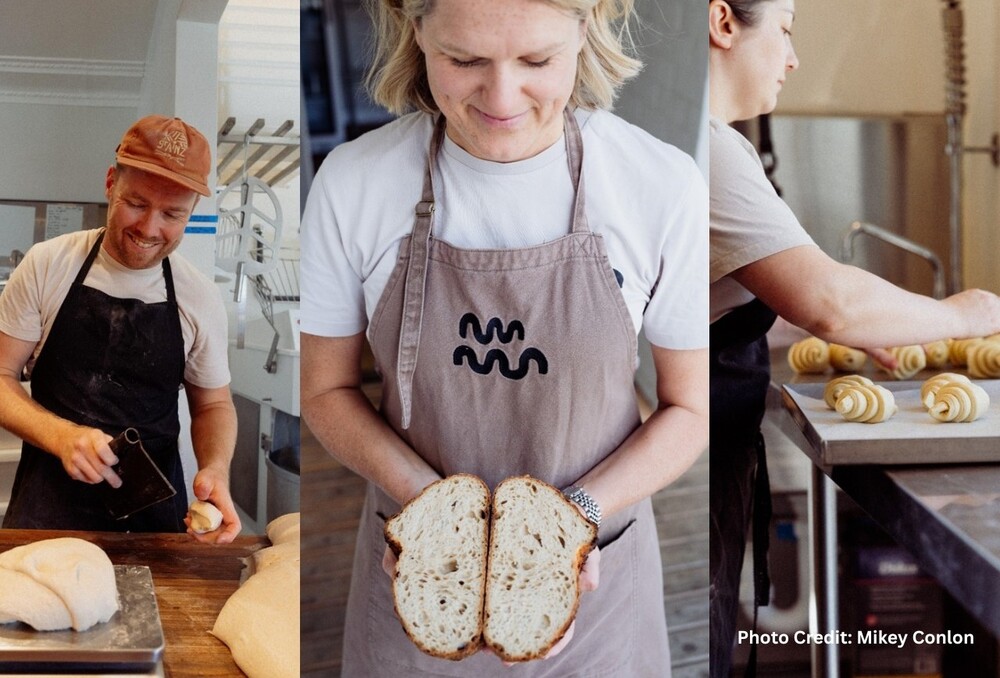
From trading excess pumpkins and basil with neighbours to building partnerships with local food producers like The Pines and the Passion Project, Richard and Lucy’s bakery is more than a place to buy bread.
It is a model of circular economy in action, grounded in a belief that great food should nourish people, place and purpose.
That ethos has now been formally recognised with a Snail of Approval from Slow Food Saddleback, an international movement that champions good, clean and fair food.
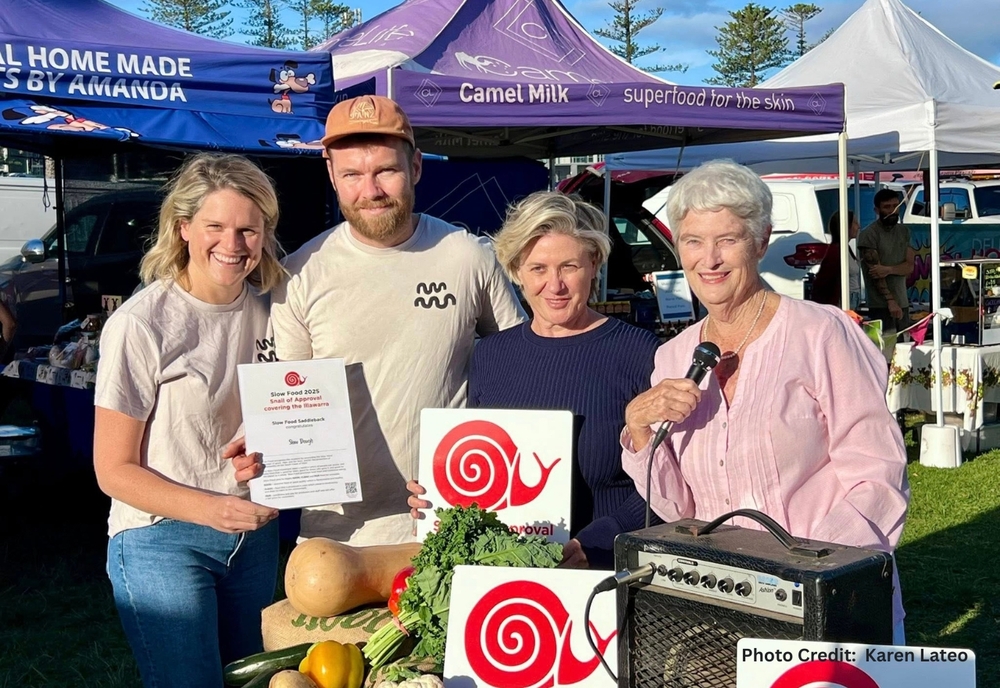
Slow Dough’s connection with Slow Food Saddleback began long before their Snail of Approval.
While still baking out of their garage, Richard and Lucy were invited by a Slow Food member to provide bread for a community pickling workshop.
That early collaboration grew into a warm, ongoing relationship marked by shared values around local food, sustainability, and community education.
Since opening their bakery, they have continued to support and host Slow Food events, including a focaccia-making course, and have become enthusiastic ambassadors for the movement.
The Snail of Approval they received is more than a badge, it is a reflection of their deep alignment with the Slow Food ethos and their commitment to nourishing both people and place.
"To us, the snail stands for intention," says Lucy. "Every step, from the flour we choose to the way we serve our customers, is done with care."
The real revolution is not just in the oven. It is in how they have transformed their space into a hub where sourdough starters meet community starters, compostable cups tell quiet stories of considered choices, and Friday to Sunday service is backed by a five-day process of slow fermentation and fastidious care.
"Nothing we do here is overnight," Richard says. "We have built this by staying curious, listening to our customers, and staying rooted in why we started, to bring people together over beautiful bread."
That guiding purpose is visible in everything from their rotating menu to their waste management system. Offcuts and compostables are collected weekly by Kerryn McInnes from the Passion Project, who turns Slow Dough’s scraps into garden gold.
Customers, too, are part of the cycle: some bring lemons, tomatoes or rhubarb from home gardens in exchange for loaves. In a time of rising costs and environmental anxiety, this small exchange feels like a balm.
Lucy brings her background in corporate sustainability to the heart of the operation. “We could not do what we do if we were chasing perfection,” she explains. “But we can make considered decisions, partner thoughtfully, and create an experience that reminds people why food matters."
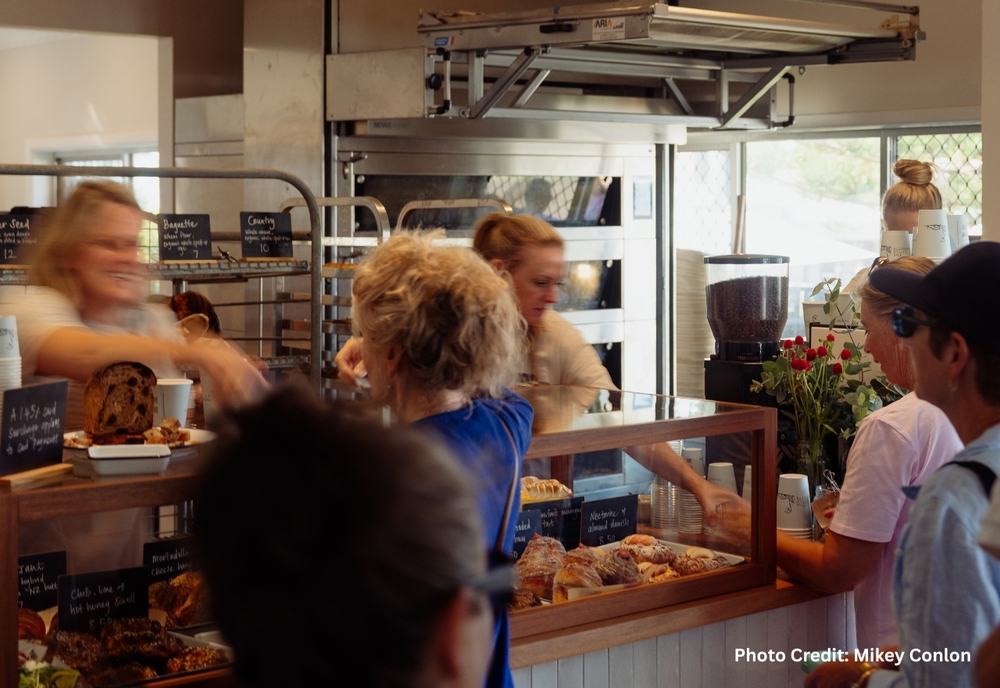
Their past lives in the corporate world also help shape the culture inside the bakery.
Empowering their team, from casual weekend staff to young mums returning to the workforce, is as important to them as sourcing quality flour. "Everyone here is part of the story," says Lucy.
Slow Dough’s approach is a reminder that value is not always measured in speed or volume.
It is found in the long ferment, the imperfect peach Danish made with fruit from the Wednesday market, and the casual team member who feels part of something bigger.
For Richard, who once worked in corporate change management, the bakery has become a different kind of leadership project, one where growth is measured in meaning, not scale.
"Sure, we’re a business," he says, "but we’re also building a culture, for our team and for everyone who walks through the door."
Slow Dough’s snail may be small, but it carries a big message: local food made with care can still be delicious, inclusive, and economically viable. It just takes time, and people willing to bake the difference.
NEWS


